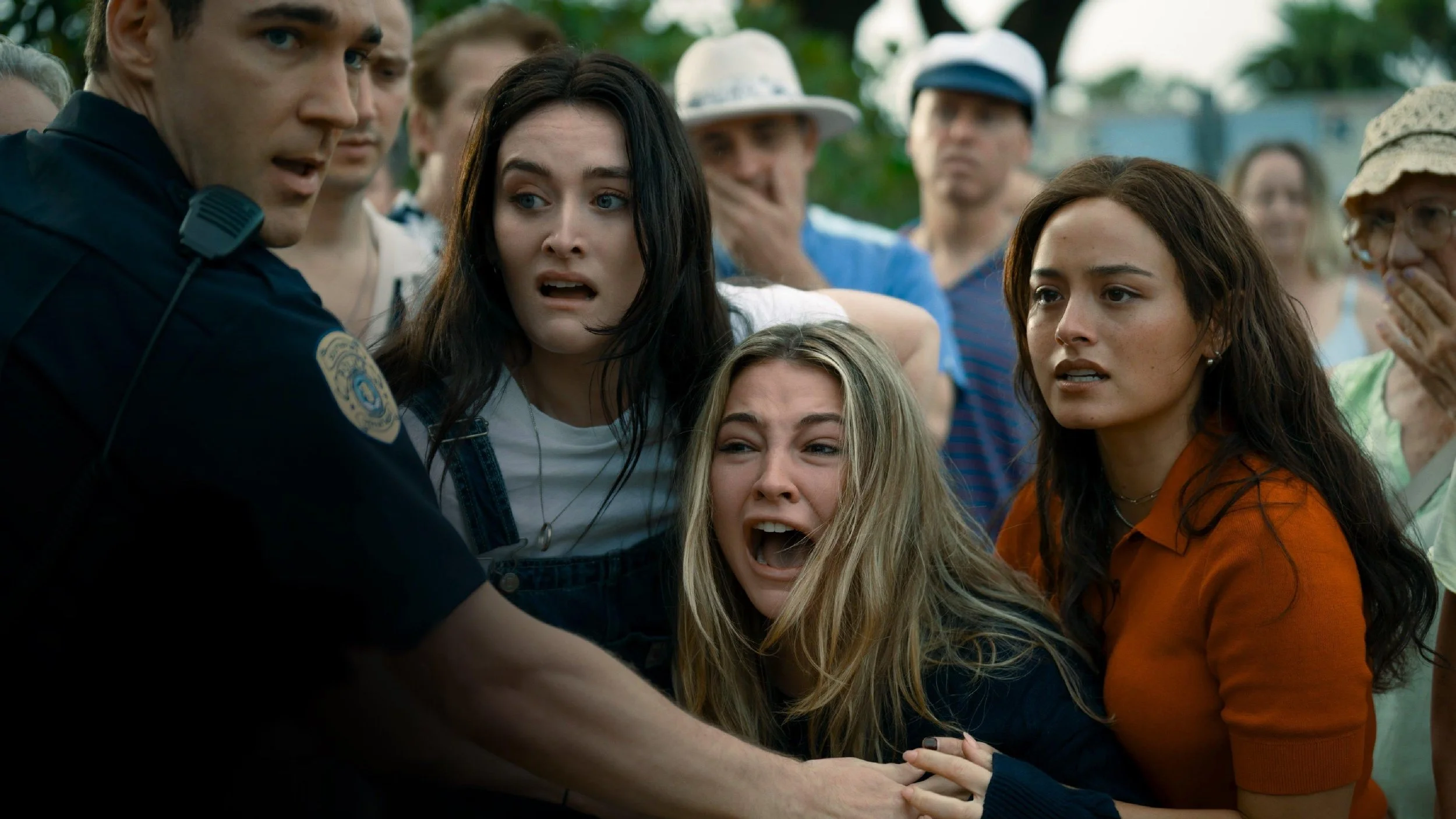#172: I Know What You Did Last Summer (2025)
Release Date: July 18th, 2025
Format: Theater (Cinemark Century Orange and XD in Orange, CA)
Written by: Sam Lansky and Jennifer Kaytin Robinson
Directed by: Jennifer Kaytin Robinson
1.5 Stars
I’m not sure where to start with I Know What You Did Last Summer, the 2025 sequel to a film franchise that’s been gathering dust for almost thirty years.
I guess I’m mostly confused by the film. I would say I’m not sure who the film is for, but Dakota was excited to see it, and my friend Bryson wants to see it too, so there is a smattering of horrors fans (mostly millennials, I would imagine) who have fond memories of these characters from all those years ago.
I can’t say I am big fan of the franchise, even back then. I remember watching the first film, but I have no memory of the second. In my recollection I remember the original I Know What You Did Last Summer as a lesser Scream, cashing in on the very genre that Scream revitalized - ‘80s-style slashers - but without its sense of fun and self-aware irony.
Apparently there was a straight-to-video I Know sequel in 2006 (which you would think would kill the franchise for good) but for whatever reason, here we are, a full generation later, with a new tale of a man with a large fishing hook, killing young people in the town of South Port, North Carolina.
And boy is this movie bad.
Dakota and I were discussing its badness on the way home, and it’s a tricky thing, the way in which I Know What You Did Last Summer is bad. It’s not a question of whether it’s bad or not (it’s definitely really bad), but there is a question of whether or not it manages to transcend to something like camp or cringe core.
I don’t think it does. I wish it did, because it would make the movie more fun. When I got home from the theater I perused the internet for John Waters’ writings on camp, because who would know better than him, and in his words, “...if you’re in on it, it can’t be camp. It has to be something innocent that tried to be good, that was so bad…That’s the true meaning of the word. If you’re trying, like the Met Gala where everybody gets dressed up and spends a fortune, that’s not camp. That’s couture. It’s very different.”
Writer/director Jennifer Kaytin Robinson flies oh so close to camp, with her dramatic dialogue from b-movie stars from the ‘90s like Freddie Prinze Jr. and Jennifer Love Hewitt. Certain aspects of her film seem ripe for camp, but unfortunately the rest of Robinson’s movie consists of slick attempts at genuine scares and twists and turns and laughs, and she wants to be in on the joke.
For example, at the end of the film the two surviving protagonists remark at how hungry they are, that they don’t think they’ve eaten in days, an attempt by Robinson at meta commentary, that ‘Isn’t it funny how characters never take the time to eat in slasher movies?’ There is also a line from Hewitt’s character that “nostalgia is overrated,” a clear wink-wink directed at the audience about the movie’s nostalgic aspirations.
Don’t get me wrong, nobody laughed in the theater at these lines, but Robinson is definitely attempting ironic humor here.
She’d be better off playing it straight.
And not to be a jerk, but this is the worst directed movie I’ve seen in a long time. There are multiple scenes where action is confusing. For example, there is a scene where a character is being stalked by the killer inside his home, and there is a particular shot that really bothered me. I’m still thinking about it.
Robinson’s camera follows this protagonist slowly through his house, and from a distance, we, the audience, clearly see a dark figure standing at the end of a long hallway, right in the middle of it. Our protagonist either doesn’t see him or doesn’t seem to care, it’s unclear, because he continues walking straight at him. When he gets close, sure enough, the dark figure jumps out with his signature fishing hook and attacks.
It’s only after the killer attacks that we see he was hiding behind a full-sized human sculpture at the end of his hallway.
But the audience didn’t know that! Robinson doesn’t establish the sculpture for us earlier in the film, so it’s confusing. We’re just left wondering why this character is walking directly into the killer’s grasp. Robinson’s directorial ineptitude kills any sense of suspense or dramatic irony.
I could go on with a bunch of other stuff in the film that doesn’t work, but I’m not going too.
As much as I wanted I Know What You Did Last Summer to achieve a schlocky transcendence, it didn’t get there for me. It instead turned out to be just bad.
